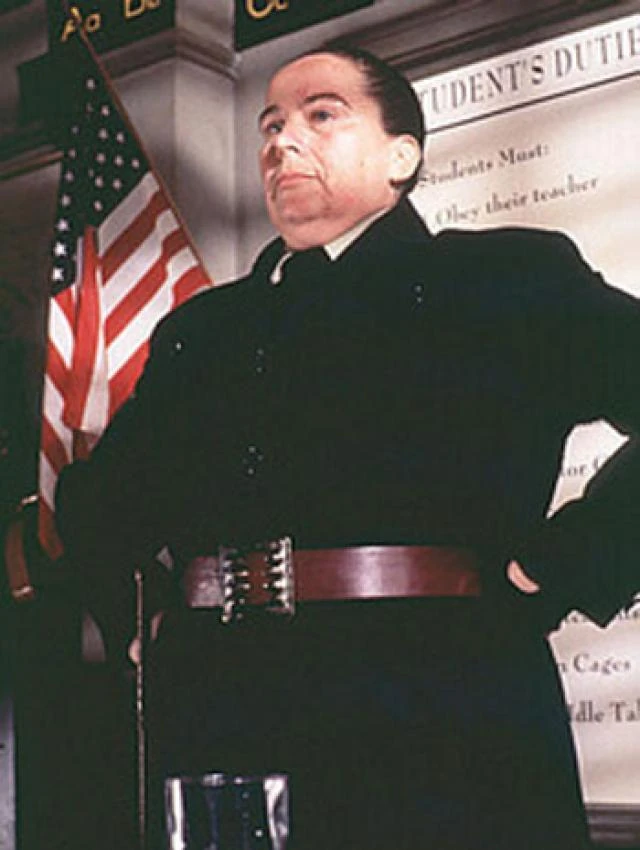
I am a member of a couple of Facebook groups designed to provide advice to teachers on various subjects. One of those groups has more members than live in the county seat where I live.
Something I read over and over again is “my principal is out to get me”.
Full disclosure: I was a principal for twelve years. There were things I liked about it and things I loathed about it. There were things I was very good at, and things where I needed improvement. I think that is probably true for just about any job.
Because I was first a teacher and then a principal, I like to think that I have some insight into being an educator. I am also a parent of a challenging student. I like to think I’ve been on both sides of the desk. In some ways I’ve been on all four sides of the desk.

Contrary to popular opinion, principals do not have their hearts removed when they obtain that degree and license. They do not have half of their brains removed either. Really. This is absolute truth!!
Yes, it is possible for a principal to dislike a teacher or other staff member. However, I believe the number of really mean-spirited principals is a low percentage.
The reality is that principals, like teachers (paras, secretaries, nurses, custodians, and lunch room personnel), are as human as you are.
Teachers seem to have several complaints about principals. In this blog, I’m going to try to summarize what I’ve seen on some of the teacher Facebook groups.

Believe it or not,
- Principals are not spying when they walk through the classroom or stop in the doorway to see what’s going on.
Making unannounced visits are part of their job. Some call this behavior “management by walking around”. They are seeing and being seen. Some have been trained to do “walk though evaluations” in addition to formal evaluations.- Suggested response: If you see the principal in the doorway or in the room, smile, wave, invite them in without stopping the lesson. If you are not engaging in direct instruction, quietly tell the principal what’s going on in the room and why. Don’t act like you have something to hide. Be proud of your professionalism.

- Principals are not trying to hurt your feelings when they point out something on which you could improve.
No one is perfect. We can all improve on something. We would rarely, if ever, feel belittled or picked on if our (sports) coaches told us to work on a particular skill. A principal is supposed to be an instructional leader. S/he must be able to point out things to improve.- Suggested response: Nod. Ask the principal for more information or a resource s/he recommends. If you think the principal is off-base, try to calmly explain that. If you feel too emotional, say something like, “Would it be okay if I come back to see you about this tomorrow? I’d like to think about it a bit.” Odds are the principal will agree.

- Principals are not out to “get” teachers (usually).
Yes, there are some bad eggs who become principals. But the vast majority became an administrator because they believed they could make a difference in the lives of students and faculty. They rarely set out to make a teacher’s life miserable. If you think you are under more scrutiny than your peers, think about why. Is there something you could do better or differently? For example, are you spending faculty meetings grading papers or reading the newspaper; are you trash-talking the school personnel, parents, students, or others; do you turn in paperwork on time? If so, what image are you projecting?- Suggested response: My mother taught me to “kill ‘em with kindness”. That is, be polite. You don’t have to take colleagues home with you or make them your best friends in order to work with them. You don’t even have to like them. No one knows what is going on inside your head. Treat the principal the way you would like to be treated. Poke your head into the office to say, “Good morning” to the office staff. Smile. You don’t have to be a “yes person”, but do consider the image you project to your co-workers. (That includes the principal.)
- Principals are not trying to make impossible rules.
Principals must carry out the directions and policies of the superintendent, the school board, the curriculum director, the Title 1 coordinator, the special services director, etc. A principal is considered “middle management” which means s/he is smack dab in the middle with demands from the previously mentioned people, but also from the union, faculty, paras, nurse, administrative staff, parents, and the community. I’m not saying you should feel sorry for them; they knew what they were getting into. But do know that being in the middle means that sometimes they make the wrong decision. Like all humans, they don’t always see all sides of the issue. I imagine you’ve goofed a time or two with students. When that happened, what did you do?- Suggested response: Rather than imagining the worst, try to imagine where this new policy is coming from. If you believe you must speak against the rule or policy, do so calmly. Offer a solution. This last is very important. It is easy to make an often justified fuss about something. It is so much better to offer an alternative solution.
- Principals are not instantly taking the side of students.
Principals start out as teachers. They know students try to put a particular spin on situations. However, they also deal with students who are sent to the office for particularly petty reasons. For example, I worked with teachers who would send students to the office for not having a pencil (I gave them one), or for looking out the window instead of doing their work (I told him/her to come work on it during their lunch). In both cases, students were sent back to the classroom quickly.- Suggested response: Try to phone the principal (or A.P. or Dean of Students) and explain why the student has been sent to the office. Use observable and measurable terms. At the same time, consider the message you are sending to the student when you send him/her out of the room. Are you doing what the student wants? (I had a student who used to give himself a nosebleed on purpose at the beginning of math so he could be sent out of the room and miss math. In other words, what is the student “buying” when s/he engages in this behavior? Is his/her aim to get sent out of the room?)

- Principals are not instantly taking the side of parents.
Principals hate surprises that do not involve cake and party hats. They do not want to hear about an incident for the first time from a parent. If a parent does call, the principal is obligated to follow up on the accusation. They may believe the parent is out of line, but they must follow up. In my experience, the most common accusation was that the teacher was allegedly “picking on” a student. Often the teacher was doing no such thing, but sometimes they were.- Suggested response: Let the principal know when something happens that you think might cause a parent to call the principal. Even if you do this, sometimes students tell parents things in a certain way just to play the teacher and parent against each other. (Shocked?) Sometimes, a student takes something the wrong way. If the principal talks to you about a phone call, hear him/her out. Tell him/her what happened in observable and measurable terms. And if you goofed, admit it and ask how to fix it.
- Principals are not being unsupportive if s/he says you need to use sending a student to the office as a last resort.
Sometimes teachers, especially inexperienced ones, expect the principal to step in and bring a class to order. If the principal doesn’t do that, the teacher labels him/her as “not supporting teachers”. The fact is, teachers are expected to manage the classroom. That is something entirely different from disciplining the class. Good management sharply reduces any need for discipline. If a class is out of control, and if the principal steps in to fix the situation, the students see the teacher as weak. If the teacher is seen as weak, there are students who will attempt to capitalize on that. It becomes a vicious cycle. The principal who refrains from disciplining your class is, on one hand, doing you a favor. On the other hand, teachers are expected to know how to manage a class. (Remember, the number one reason why teachers are non-renewed is because of classroom management issues.)- Suggested response: If you do not understand the difference between management and disciple, read up on it. The most widely recommended book for this is Drs. Harry and Rosemary Wong’s The First Days of School. Find and talk to a mentor teacher, or even the principal. Don’t be afraid the overhaul your management plan midway through the year if it is not working. However, don’t change things up every few days – if your plan has been weak, it will take the students a little while to test out your new plan and practice it.
Principals can be a very different kind of animal. Still, they are educators first. Remember “principal” stands for “principal teacher” or “lead teacher”. Yes, there are some that are better than others. However, just about all respond well to teachers who treat them with respect and courtesy, professionalism and kindness.
